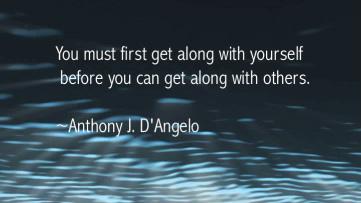 Healthy partnerships aren't automatic. Once we commit to a relationship we have to be willing to take the time and energy to develop and work on it. Research shows, however, that the quality of our personal relationships can have a big impact on our physical and mental health. For example, relationships influence the ways we eat, exercise, engage with family, and how we spend our downtime. Although relationships are not going to be "perfect" all the time, fostering healthy interactions and understanding one another can help you and your partner to feel secure, happy, loved, respected, and free to be yourself. The following questions are to help you explore your relationship. There are no "right" or "wrong" answers - just opportunities to keep open the lines of communication. 1. Do you believe your partner is your greatest ally and support? 2. What's your partner’s greatest quality? 3. Do you enjoy spending time with each other’s friends and family? 4. How does your partner show affection? 5. How does your partner support you when you are going through a tough time (job loss, family struggles, school challenges)? 6. How often do you laugh together? When was the last time? - Learn more about WVC Therapist, Appointments and Counseling Fees.
1 Comment
 Relating to others is a necessary part of daily life. From discussing household chores and expenses with our partners to negotiating differences among colleagues to planning a dinner with friends, how we interact is integral to how we get our needs met on a daily basis. And, the results impact how we feel about our lives and ourselves. For example, how we interact has the potential to create friendship, growth, support, understanding, and connection. It also has the potential to bring frustration, anger, misunderstanding, disappointment, and pain. So what is it about the way we interact with others that creates agreement or disagreement, appreciation or criticism, loyalty or indifference? Well... it's not so simple. But, when you think about how to interact with others to create connection, understanding and support, it's important that you start with you.
- Learn more about WVC Therapist, Appointments and Counseling Fees. This is sort of a loaded question. Successful relationships can take many forms and mean different things to different couples. But, two things most successful couples can agree on is that successful long-term relationships involve ongoing effort and compromise by both partners. So, what does it take to build, maintain, or improve on your current relationship?
1. Expect Changes. What you want from a relationship in the early months of dating may be quite different from what you want after you have been together for a while. (For some couples that may mean a couple months for others a couple of years.) Anticipate that feelings of love and passion will change with time and that both you and your partner will change over time. It’s impossible to know exactly what those changes will look like, but allowing for and valuing change is a healthy outlook that helps create success in relationships. 2. Accept Differences. Sometimes our assumptions that our partner will change, or that we can change certain habits of our partners are just that... assumptions. It is important to be aware and to accept that there are some things about ourselves, or our partners, that will not change. Allowing for and appreciating differences is not just an important part of creating successful relationships, but demonstrates a healthy respect for yourself and your partner. 3. Speak Up. The closer and more familiar we are with our partners the more we expect that they know our wants and needs, but this is often not the case. It is important to keep in mind that your partner is likely having a number of thoughts at any given time and that its impossible for them to know exactly what you are thinking. If something is important to you, speak up and express your want and needs directly to your partner. 4. Develop Your Interests. In successful relationships there is respect for each partner's right to have her/his own feelings, friends, activities, and opinions. It is unrealistic to expect that that your partner can fulfill all of your needs or share the same priorities, goals, and interests as you. So take time to cultivate your personal interests, friendships and goals while working together to define your shared ones. - Learn more about WVC Therapist, Appointments and Counseling Fees. |
Categories |
English: 541-600-2034
Espanol: 541-636-0885
WILLAMETTE VALLEY COUNSELING, LLC
EUGENE, OR, 97401
© 2021 Willamette Valley Counseling, LLC ALL RIGHTS RESERVED
Espanol: 541-636-0885
WILLAMETTE VALLEY COUNSELING, LLC
EUGENE, OR, 97401
© 2021 Willamette Valley Counseling, LLC ALL RIGHTS RESERVED
